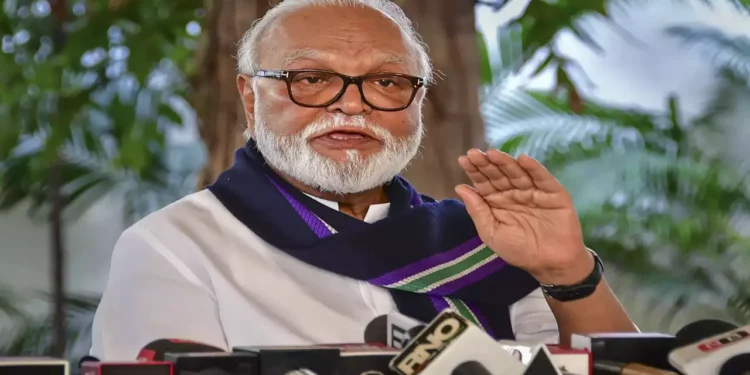Lagatar24 Desk
Mumbai: In a surprising development, Maharashtra Deputy Chief Minister and NCP president Ajit Pawar has dropped senior leader Chhagan Bhujbal from the newly expanded state cabinet. Bhujbal, a prominent OBC face in the previous government, expressed no objection, stating, “It is the prerogative of the NCP president; I will abide by it.”
Ajit Pawar hinted at introducing two-and-a-half-year ministerial terms for specific portfolios to accommodate broader representation across districts. This strategy, formulated with the approval of Chief Minister Devendra Fadnavis and Deputy CM Eknath Shinde, is expected to make way for a greater number of MLAs to join the cabinet over the next five years.
Veterans Dropped from Cabinet
Apart from Bhujbal, other senior leaders dropped include Dilip Walse Patil, Dharamrao Baba Atram, Anil Patil, and Sanjay Bansode. These leaders previously held significant portfolios like cooperation, relief and rehabilitation, food and drug administration, and sports, respectively.
The removal of Bhujbal, who championed the OBC cause during the Maratha quota stir, has raised eyebrows within the NCP. A senior leader remarked, “It was wrong to drop Bhujbal when he stood firmly against Maratha leader Manoj Jarange.”
Sources suggest Ajit Pawar is keen on retiring leaders aged over 70 to bring in younger faces, though some within the party feel the timing was premature, given the ongoing political sensitivities.
Internal Opposition and Future Plans
Reports indicate strong opposition to Bhujbal’s induction from newly elected legislators, particularly those from Nashik district. Sinnar MLA Manikrao Kokate reportedly led the opposition against Bhujbal.
Meanwhile, veteran leader Dilip Walse Patil reportedly opted out of the cabinet due to health concerns. Present at the swearing-in ceremony, he is expected to take up a gubernatorial role as part of an understanding between the NCP and BJP.
Strategic Cabinet Reshuffle
Ajit Pawar’s decision reflects a broader strategy to ensure equitable representation in the government while addressing demands from newly elected MLAs. The introduction of rotational terms aims to balance seniority with fresh leadership, though the move has sparked debates within the party ranks.






